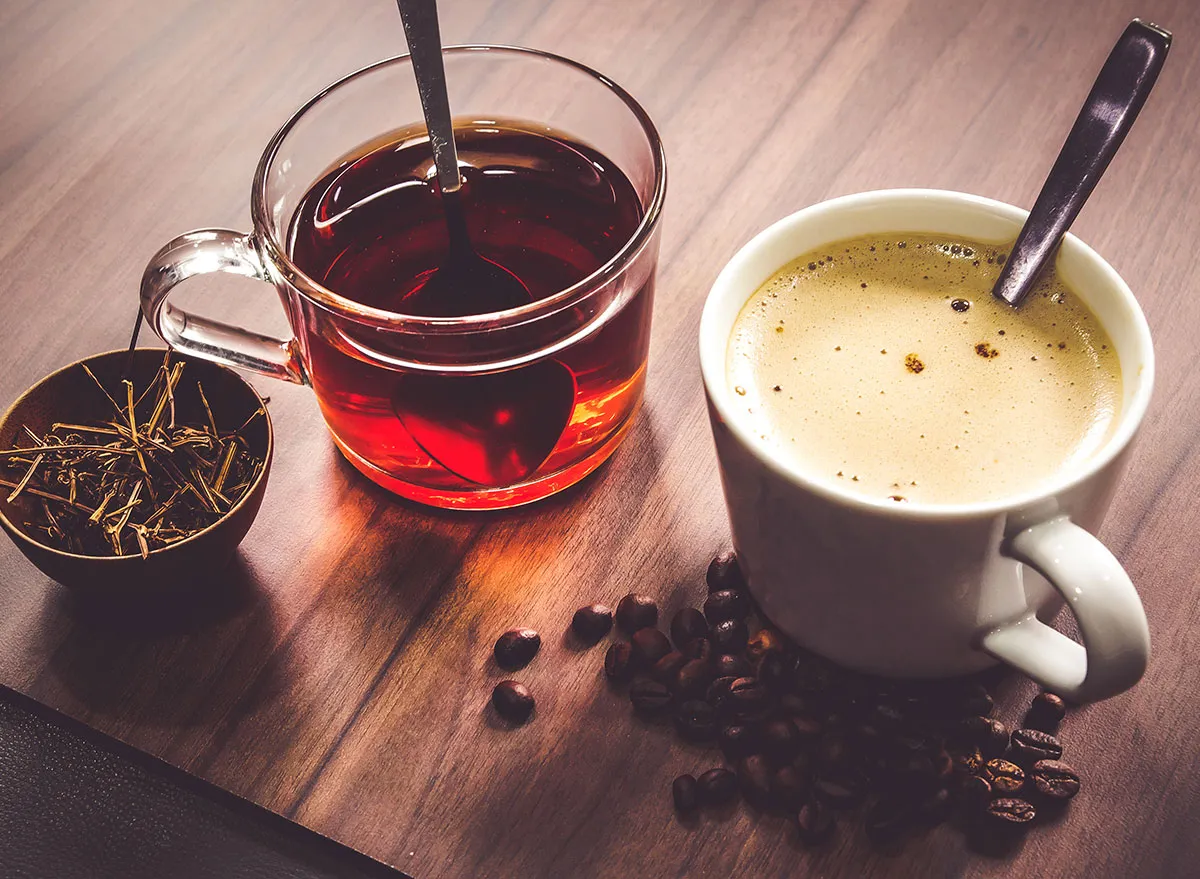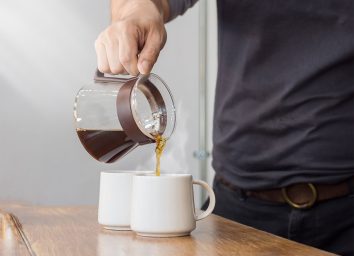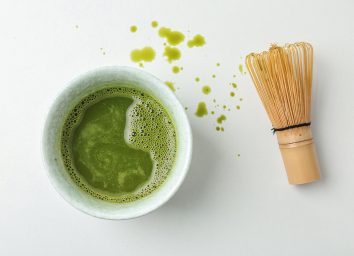
Tea or coffee, coffee or tea? The decision of which beverage to choose at breakfast or your afternoon pick-me-up is as old as the American Revolution when drinking coffee instead of tea served as a sign of patriotism. These days, of course, the choice is merely a matter of personal preference—and the potential health benefits of each.
But is one better for you than the other? Here's a look at coffee and tea's unique wellness-boosting properties, plus a few possible risks.
The health benefits of coffee
Over the years, coffee has garnered some mixed reviews. It seems like every time you turn around, a new study hits the news claiming your cup of joe will either cure or cause a health condition. Overall, however, most studies on coffee and health have yielded positive results.
First, coffee contains high doses of antioxidants—the compounds that help clean your cells of damaging free radicals, reduce inflammation, and slow the aging process. But coffee's benefits don't stop there. A large study from 2013 found that when people increased their coffee consumption by more than one cup per day over a four-year period, they had an 11% lower risk of developing type 2 diabetes. And according to the Parkinson's Foundation, there's a clear connection between coffee drinking and a reduced risk of Parkinson's disease. Coffee consumption has also been linked to the prevention of dementia and Alzheimer's disease, liver disease, and colon cancer.
The health benefits of tea
Brewed beverages for the win! Like coffee, tea is rich in antioxidants. These flavor compounds may be responsible for some of tea's beneficial effects on health. The National Cancer Institute reports that antioxidants in tea have been shown to slow the growth of cancerous tumors. Plus, one study of over 100,000 adults revealed that people who drank tea three or more times in a week experienced reduced risk of cardiovascular disease and death by any cause. Some research even suggests that the polyphenols in tea could boost good bacteria in the gut. And, intriguingly, a 2019 study found that regular tea drinkers had slightly higher levels of good cholesterol and lower body mass index (BMI).
For more healthy tips, be sure to sign up for our newsletter.
The health risks of coffee
We've all been there: One venti latte too many and suddenly we're jittery and running to the bathroom. Despite coffee's many benefits, it's possible to get too much of a good thing. Generally, this comes down to coffee's caffeine content, which varies, but typically averages around 100 milligrams per eight ounces.
A number of health conditions can be aggravated by caffeine, from acid reflux to overactive bladder to irritable bowel syndrome. Excess caffeine can even mess with your mental health! An older study from 2005 found that caffeine exacerbated anxiety and sleep disorders. Pregnant women should also be careful about coffee consumption, as it's recommended to consume less than 200 milligrams of caffeine during pregnancy. If you're living with any of these conditions (but can't live without coffee's rich taste and aromatic smell), try switching to decaf.
It's worth noting, too, that coffee's flavor compounds have a dark side—literally. Tannins stick to the teeth, causing staining. Mitigate these effects by swishing with water or brushing your teeth after your morning cup.
The health risks of too much tea
While tea is a universal beverage the world over (second only to water in global consumption), chugging Earl Grey all day isn't always advisable. Although black tea has only about half the caffeine of coffee at an average of around 50 milligrams per 8 ounces, this can add up over time. Just like coffee, too much caffeine from tea may cause jitteriness and irritations to some health conditions. And like coffee, tea's tannins can also discolor your teeth.
The bottom line
Clearly, both coffee and tea come with some impressive health benefits–and, when drunk in moderation, very few drawbacks. So is one technically healthier than the other? Not necessarily. But if caffeine is a concern for you, stick to decaf coffee or make the switch to a lower-caff tea.
Now the only question that remains is: Cream or sugar?








